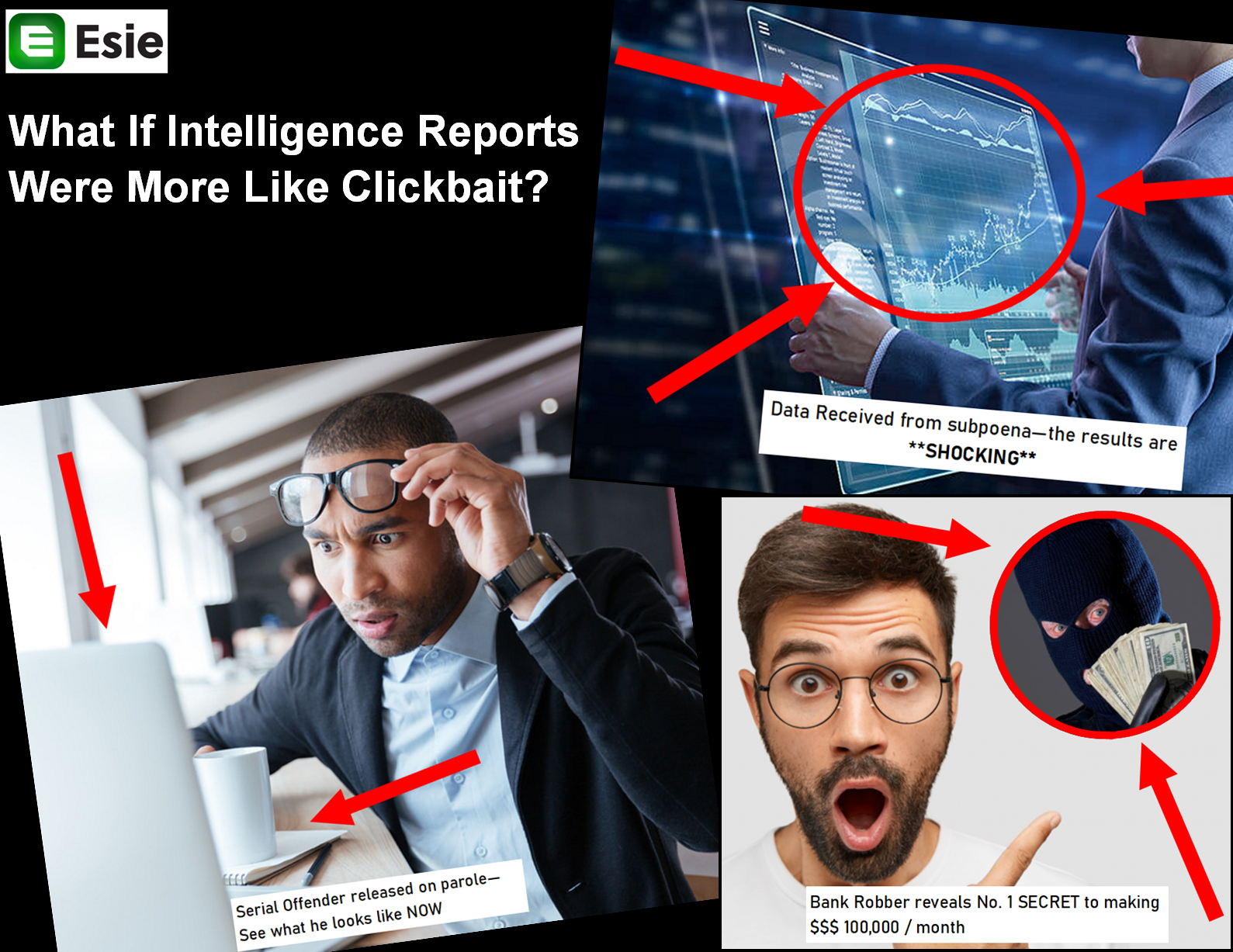If Intel Were Clickbait
One of the most gratifying parts of work as an intelligence analyst is when someone makes a decision based on something you wrote. There is, however, the nuanced task of enticing them to read it. It must capture their attention. So, to increase readership, what if intelligence products were more like clickbait? Wouldn’t the world be better if more decision makers read your intelligence products?
Would exciting and suspenseful titles on intelligence products lead to better readership? Is that good for intelligence?
“The Top 10 Targets in This Criminal Network – You’ll Never Guess Number 6”
“Serial Offender Released on Parole – See What He Looks Like Now”
“More Data Received from Subpoena – The Results Are SHOCKING!”
“You Won’t Believe Where This Guy Went Before Committing Murder…”
“WOW! The Sexiest Concealment Methods of July”
Clickbait, those internet advertisements with images and titles designed to pique our curiosity and lure us to their content, are found nearly everywhere online. They tempt us to articles, games, apps, or in a down-the-rabbit-hole scenario, more clickbait. Their images and titles resort to excitement and mystery and tempt the observer to click the ad to satisfy their curiosity.
Distracting at best, clickbait clutters our internet experience due to its marketing success. That is, it works. Internet revenue and worth are derived from the size of your audience, the number of visitors, your total subscribers or followers, the amount of time spent viewing your content, and more. Clickbait generates interest, clicks, and revenue.
Are there lessons intelligence analysts can derive from clickbait’s tactics? To a degree, yes. Intelligence writing is direct and unsensational, the exact opposite of clickbait. A comparison of clickbait and intelligence reveals the lesson - what not to do and, importantly, why. Let’s consider two factors.
First, we examine the purpose of intelligence writing compared to clickbait. The paramount objective of clickbait is clicks, readership, and maximizing the size of the audience. With intelligence writing, the key objective is the message. Clickbait is about marketing, and intelligence is about the product. The product must be well-crafted and clear. Sensationalism brings in emotions that can obscure the logical, evidence-based analysis. Use of mystery and cliffhanger titles only serve as an obstacle for the reader, obligating them to read further when they may only have time for a title.
“Don’t write so that you can be understood, write so that can’t be misunderstood.”
The audience is the second important factor to consider. Clickbait, even with targeted ads, is for the general internet-surfing public, like a fishing lure in a pond. Intelligence is for people with a job to do and to aid them in the discharge of their duties. In this sense, the intelligence audience is practically dutybound to read the intelligence, whereas the clickbait audience is not.
Both audiences have competing priorities, and therefore the titles must capture their attention. Intelligence can do this without clickbait’s tactics. It must not be sensational, mysterious, or suggestive. Instead, a good intelligence product title commands attention for its clarity and pertinence to the audience.
A title is a contract with the reader. The analyst’s product must fulfill that contract. Intelligence writing fulfills that contract usually in the first sentence or two, known as the topic sentence. It includes “the what” and “the so what” – a succinct explanation of what happened and what it means. Crafting a good title and topic sentence is a skill that can be improved through training and experience.
Every intelligence analyst thinks their product must be thoroughly read and consumed. They would not have written it otherwise. It irks them when they discover it only received a glance if it was read at all. While readership of intelligence is important, it is never as important as the intelligence product’s message. The intelligence analyst understands that how intelligence is communicated is just as important as the intelligence itself.
As fun as it is for your correspondent to create clickbait intelligence product titles (perhaps you can think of some more?), clickbait tactics obscure the intelligence product’s message, even if you may get more readers.


